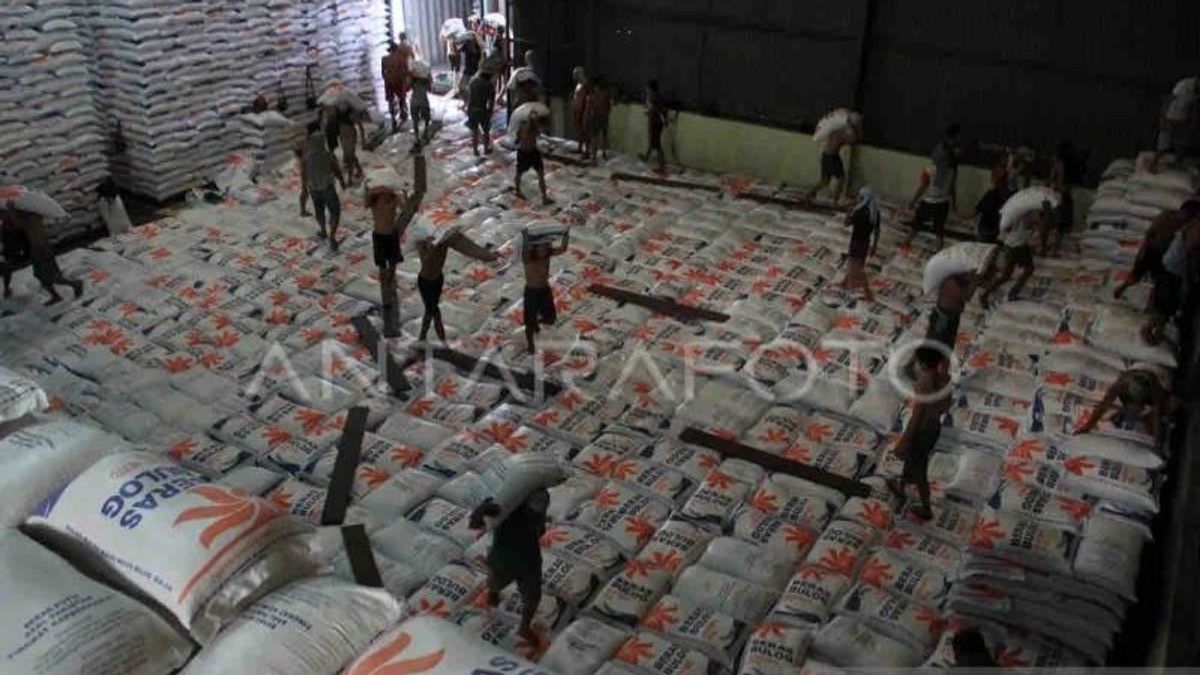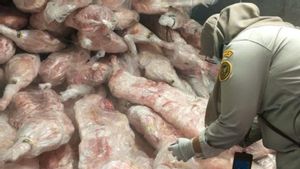JAKARTA - President Director of Perum Bulog Bayu Krisnamurthi emphasized that his party is committed to prioritizing local rice absorption despite imports.
"Imports of rice are carried out in stages, still prioritizing the absorption of grain and domestic rice and paying attention to the existing national rice balance," said Bayu in a statement in Jakarta, Antara, Sunday, July 7.
In importing rice, Perum Bulog has calculated the total cost of demurrage (loading and unloading fines) that must be paid, which is usually not more than 3 percent compared to the value of imported products.
"The cost of demurrage as well as the cost of a dispatch is a logical consequence of the import export mechanism," said Bayu.
He said that the target for local rice absorption in 2024 was 900 thousand tons.
Meanwhile, Director of Transformation and Inter-Institutional Relations of Perum Bulog Sonya Mamoriska said that Bulog received an assignment to import rice from the Ministry of Trade, amounting to 3.6 million tons in 2024.
In the January-May 2024 period, the number of imports has reached 2.2 million tons. Imports are carried out by Bulog on a regular basis by looking at the national balance sheet and prioritizing the absorption of rice and grain in the country.
Separately, Chairman of the Indonesian Agricultural Economic Association (Perhepi) Budgetul Arifin said that climate change, reduced agricultural land and decreased other production factors often hampered the achievement of food production targets.
"Therefore, another source of supply is needed as a solution to maintain price stability and rice availability in the market," said Bustanul.
According to Bustanul, the level of rice consumption per capita in Indonesia is relatively high compared to other countries. Rapid population growth and increased community welfare caused rice demand to continue to increase.
"To overcome the gap between production and consumption, rice imports are needed so that there is no shortage that can trigger a drastic increase in prices," said Bustul.
Meanwhile, Indonesian Food Expert Tito Pranolo said that if you discuss demurrage, it must also be discussed about the dispatch, namely the bonus given because the unloading of goods occurs faster.
"Of course, both of them have been experienced by Perum Bulog as the operator of the recipient of the mandate to import rice from the government and so far Perum Bulog has never burdened the community because of it," said Tito.
According to him, the current flow of rice imports in Indonesia, firstly, determining the need for imports is carried out through coordination between various government institutions, including the Ministry of Agriculture (Kementan), the Ministry of Trade (Kemendag), and the National Food Agency (Bapanas).
The need analysis is carried out based on domestic production data, existing rice stocks, and projected public consumption needs.
Second, regarding regulations and licensing, where the rice import process is regulated by various regulations issued by the government. Perum Bulog as a state-owned enterprise responsible for price stabilization and food availability, is assigned to carry out rice imports.
"Import permits involve the Ministry of Trade which issues permits based on recommendations from the Ministry of Agriculture and other relevant agencies," he explained.
Third, procurement and delivery processes. Where, after obtaining a permit, the rice procurement process is carried out through international tenders or direct negotiations with producing countries.
"The imported rice usually comes from major producing countries such as Thailand, Vietnam, Cambodia, and India," he said.
The rice delivery process is carried out by ensuring the quality and standards of food safety. However, Tito continued, since the COVID-19 pandemic, several rice exporting countries such as India have no longer allowed rice exports with the main reasons for the security of their own country's food.
Fourth, distribution and distribution. Rice that has been imported is then distributed through the Perum Bulog distribution network which includes traditional markets, modern retail, e-marketplaces, and those supported by Perum BULOG itself, such as BOSS Food and Rumah Pangan Kita (RPK).
"This aims to ensure that rice is available at affordable prices for all levels of society," said Tito.
Fifth, supervision and control are carried out strictly to ensure there are no deviations in quality and quantity.
"The National Food Agency cooperates with other relevant agencies, including the Financial Supervisory Agency (BPK) to carry out routine controls and inspections," explained Tito.
Tito added that rice imports are strategic steps taken by the government to ensure the availability and stability of rice prices in Indonesia.
SEE ALSO:
The English, Chinese, Japanese, Arabic, and French versions are automatically generated by the AI. So there may still be inaccuracies in translating, please always see Indonesian as our main language. (system supported by DigitalSiber.id)
Most Popular Tags
#Prabowo Subianto #New Year #Mother's Day #nataru #NatalPopular
22 Desember 2024, 07:54
22 Desember 2024, 12:24
22 Desember 2024, 00:30
















